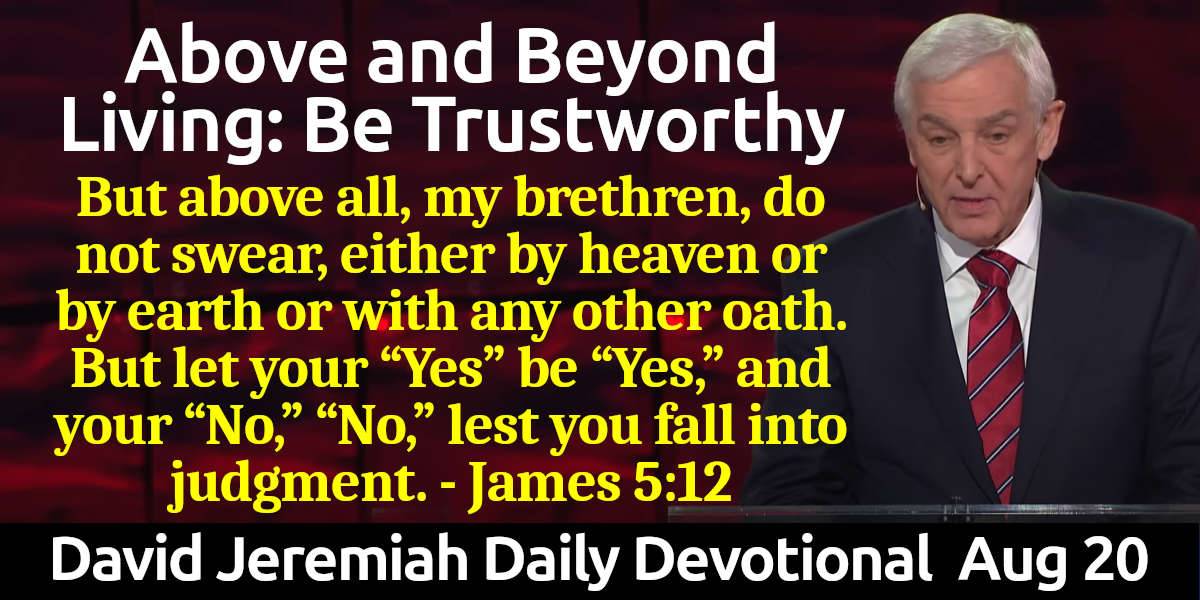David Jeremiah (August-20-2025) Daily Devotional: Above and Beyond Living: Be Trustworthy
But above all, my brethren, do not swear, either by heaven or by earth or with any other oath. But let your “Yes” be “Yes,” and your “No,” “No,” lest you fall into judgment. - James 5:12
Recommended Reading: Matthew 5:33-37 - JESUS FORBIDS OATHS - 33 “Again you have heard that it was said to those of old, ‘You shall not swear falsely, but shall perform your oaths to the Lord.’ 34 But I say to you, do not swear at all: neither by heaven, for it is God’s throne; 35 nor by the earth, for it is His footstool; nor by Jerusalem, for it is the city of the great King. 36 Nor shall you swear by your head, because you cannot make one hair white or black. 37 But let your ‘Yes’ be ‘Yes,’ and your ‘No,’ ‘No.’ For whatever is more than these is from the evil one.
The author of the book of James was the half-brother of Jesus. It should come as no surprise, then, to find echoes of some of Jesus’ teachings in James’ epistle—like James’ emphasis (“above all”) on not using an oath to guarantee the fidelity of one’s words.
Jesus spoke at length on this subject in the Sermon on the Mount (Matthew 5:33-37). Oaths, or promises, were not forbidden in the Old Testament, but by the time Jesus arrived they had become a casual way to convince others of one’s integrity. And there were warnings against making an oath, then not fulfilling it (Numbers 30:1-2). Solomon wrote that it was better not to swear an oath than to swear and not pay (Ecclesiastes 5:4-7). Instead of prohibiting oaths, James and Jesus made a person’s character the main point: Let your “Yes” be “Yes” and your “No” be “No.”
Above all, be a person whose word can be trusted. Don’t rely on oaths (“I promise”) to convince others you are speaking the truth.
The life of an honest man is an oath. - Richard Sibbes


